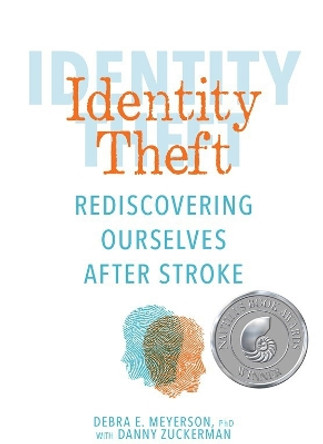Description
Worship and Christian Identity argues that sacramental and liturgical practices are the central means by which a church shapes the faith, character, and consciousness of its members. Consequently, for any church to set aside such practices as outdated or irrelevant is to set aside the means by which the church nurtures and sustains its theological identity. From this perspective, Anderson explores the following questions: What is the relationship between worship and belief? What is the relationship between corporate worship and the formation of Christian persons and communities? What is the relationship between worship and our knowledge of ourselves, our world, and God? How might our attention to the reform and renewal of worship and sacramental practice provide a framework for theological, evangelical, and sacramental renewal?
Questions of sacramental practice, inclusive or transformative language, and the renewal of congregational hymnody have been largely displaced by marketing questions and conflicts between "traditional" and "contemporary" worship. The hour of worship is subdivided now into increasingly specialized "target audiences" of singles, seekers, boomers, and "X-ers" with worship carefully packaged as "traditional" or "contemporary." What at various points has been understood as a "means of grace" is now seen primarily as a "means of numerical growth."
Missing in the conflict between "traditional" and "contemporary" worship is significant discussion of what is at stake for the identity of Christian persons and communities in the shape and practice of worship. Perhaps more surprising, discussion of the theological shape and practice of worship also has been absent in discussions concerning theological standards. These absences suggest that for many in the church today, worship is a means for expressing a community's belief but has little to do with the shape and character of that belief.
The assumption that worship is only or primarily a pragmatic means for expressing a community's belief stands in sharp contrast to the Christian tradition. This assumption also contrasts with the insights provided by recent work in ritual studies, psychology, and faith development.
Worship and Christian Identity is an important book for faculty and students in seminary and graduate programs in liturgical studies and religious education, particularly those interested in the relationships between liturgical studies and practical theology, ritual studies and liturgical theology, as well as the role of worship in Christian formation.
Chapters are "Making Claims About Worship," "Worship as Ritual Knowledge," "Worship as Ritual Practice," "Trinitarian Grammar and the Christian Self," "Trinitarian Grammar and Liturgical Practice," and "A Vision of Christian Life."
About the Author
E. Byron Anderson, Ph.D., is assistant professor of worship at Christian Theological Seminary in Indianapolis. An ordained United Methodist, he has served in parish ministry as pastor, musician, and educator. He is co-editor of Liturgy and the Moral Self, published by The Liturgical Press.
Reviews
This is a useful book for those struggling to identify the way ahead in a postmodern culture . . . the book provides a theological foundation for a revival of the catechumenate as an alternative to the so-called ?seeker service'.Interpretation
. . . Anderson does both academy and Church a great service by plumbing further the depths of liturgy's mystery as normative for and formative of living faith in the triune God. The book will prove helpful to Protestants seeking to shake their suspicion of ritual, Catholics searching for resources linking liturgy and life, and Orthodox open to new light being shed on the eschatological dimension of theosis.Bruce Morrill, S.J., Boston College
. . . will help those who want to compare the liturgical theology of the Protestants and the Catholics.Catholic Library World
The Church in general will be blessed by this book, if it is taken to heart by teachers of liturgy and leaders and planners of worship.Sacramental Life
Writing from a Protestant and distinctively Methodist ethos, Dr. Anderson explores the interface of ritual worship and the identity of Christian persons and communities. . . . A competent musician, the author shows how hymn texts, especially in the Wesleyan tradition, shape worshipers as Christians who are changed from glory to glory.R. Kevin Seasoltz, O.S.B., General Editor, Worship
Ron Anderson has brought together strong conceptual resources to illuminate the formative power of liturgical practices. Christian identity is in the forefront of theological and ethical struggles in our day. Anderson's contribution to the what and the how of identity formation shows, in a powerful way, the centrality of liturgical life and its associated practices to matters of self and community. New terrain in liturgical theology is opened for further exploration.Don E. Saliers, William R. Cannon Professor of Theology and Worship, Emory University
Book Information
ISBN 9780814661925
Author E. Byron Anderson
Format Paperback
Page Count 240
Imprint Liturgical Press
Publisher Liturgical Press
Weight(grams) 369g
Dimensions(mm) 229mm * 152mm * 16mm









